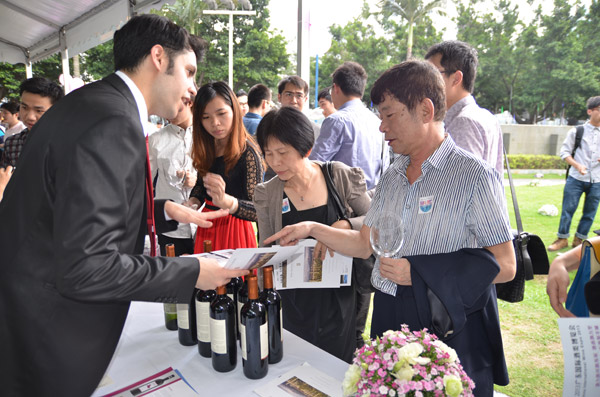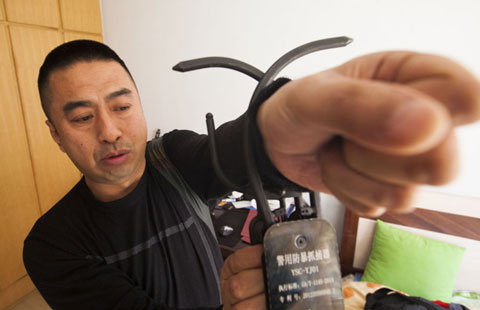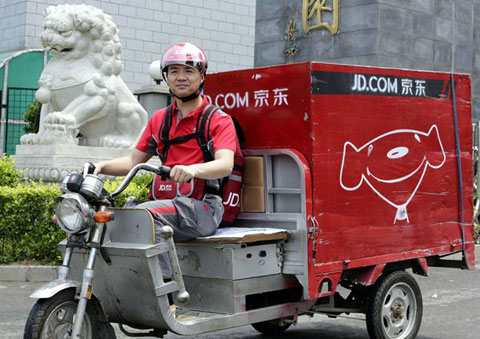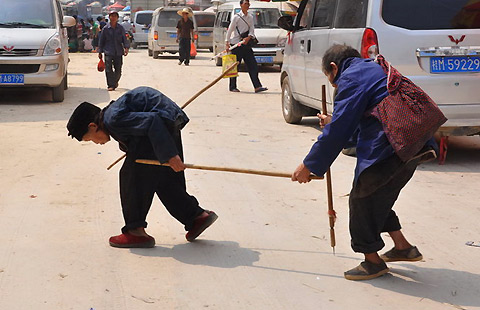Consumers show taste for S. American food, drink
Updated: 2015-04-20 03:53
By Li Wenfang in Guangzhou(China Daily Latin America)
|
||||||||
 |
|
An Argentine Wine tasting event is held in Guangdong. Provided to China Daily |
Businesses in South America are looking to boost exports to China and cater to the country's increasing demand for foreign-made products.
Ramiro Gomez Lopez's company, Nexus America, began importing beef and wine from Argentina two years ago. He said he had to double his shipments in 2014, and expects to do the same again this year.
"The future looks good," Lopez said, attributing the situation to positive government relations between the two countries, as well as the large population and rising living standards in China.
"The Chinese market is receptive to these products. Some people say the golden time (for alcoholic beverages) has passed in China, but that's not true for every sector," he added, citing healthy wine sales as an example. During the Chinese New Year in February, he said his company had to fly in extra stock after running out of wine and beef.
Lopez said he intends to start importing honey and other agricultural products from Argentina, and is working on a wine brand specifically for the Chinese market. And after seeing growth this year in exports of China-made building materials to Argentina, he is also looking for Chinese partners to establish factories and develop brands in his native country.
Sebastian E. Tosi, business manager of Topquin, said his company plans to open three stores selling Argentine beef and other meat products in Guangzhou, capital of southern Guangdong province.
China is a fast-paced market, he said, and many young people are taking to foreign lifestyles, such as drinking coffee and wine. He projected that his company will import 15 metric tons of meat products this year.
Topquin also sources leather from Greece, the Middle East, Africa, India and Pakistan for women's shoe manufacturers in China; sources handbag accessories for Argentine fashion brands, and helps inspect oil products for Argentine importers.
Tosi said he expects business to get better this year, amounting to about 40 shipping containers, as last year the market was "a bit weak".
China Invest, which offers consultation services to Brazilian import-exporters by working with business associations there, is shifting focus to imports to China, given the softening economy, according to general manager Paulo Machado. The imports include wine, whiskey, juice, cookies, honey and pasta.
Imports from South America, worth a combined $60 million last year, accounted for more than 30 percent of all imports facilitated by the World Brands China Import Fair, said Steven Hou, CEO of the company, which runs an online marketplace and a trade fair.
"We can see that the governments in South America are taking a proactive approach to expand trade," he said. However, he warned there are still factors standing in the way of faster growth in imports from South America.
For example, some South American companies do not see attractive packaging as important, but it is in the Chinese market. Others do not take a proactive approach in promoting their products to potential clients, believing they have good brands and do not need to. Chinese importers, however, need such information to build trust in the products. Meanwhile, some return English e-mails from Chinese importers in Portuguese or Spanish, leading to language barriers.
Logistics can also be an issue when dealing with perishable goods, Hou said.
It takes one to two months to ship milk power by sea from South America to China, where there is a large market. Yet additive-free milk power usually has a shelf life of only six months to a year.
"We try to facilitate the import of addictive-free milk power, but the shelf life remains a major problem," Hou said.
liwenfang@chinadaily.com.cn

 Shanghai auto show kicks off
Shanghai auto show kicks off
 Annual Tweed Run held in central London
Annual Tweed Run held in central London
 Wood sculptures discovered inside cliffside cave in Chongqing
Wood sculptures discovered inside cliffside cave in Chongqing
 Antiriot device earns national patent for Jilin farmer
Antiriot device earns national patent for Jilin farmer
 7 trends that will shape China's supply chain
7 trends that will shape China's supply chain
 Girls celebrate adulthood in NW China
Girls celebrate adulthood in NW China
 Couple linked by a stick
Couple linked by a stick
 Natural History Museum opens in Shanghai
Natural History Museum opens in Shanghai
Most Viewed
Editor's Picks

|

|

|

|

|

|
Today's Top News
AIIB looks to be efficient and 'green'
Bridging cultures with laughter
and song
Central bank cuts ratio for reserves
China's real estate market is a key global contributor: Conference
Envoy: Many benefits to Xi's visit
China concerned at reports of New Zealand-US plan to spy on diplomats
Old Summer Palace may sue over controversial replica
China and the 2016
US election
US Weekly

|

|






